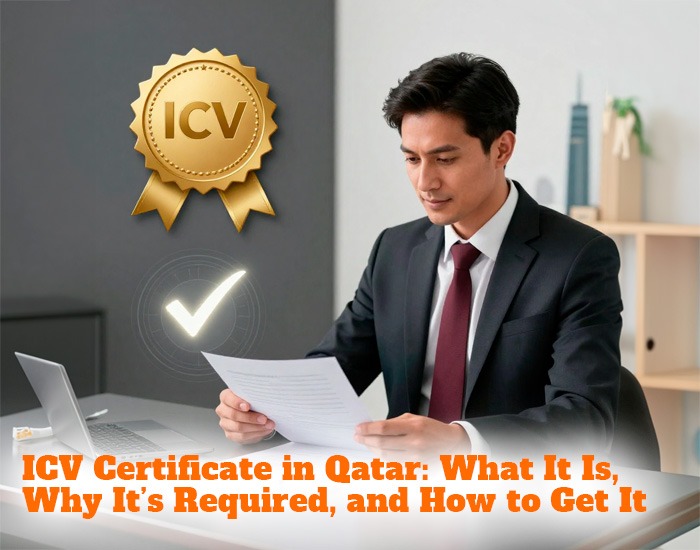Qatar has emerged as a vital hub for foreign investment and entrepreneurial activity in recent years. With a dynamic economy, modern infrastructure, and business-friendly reforms, the country offers a wealth of opportunities for international ventures and Startups in Qatar. However, before you dive into the process of starting your venture, it’s essential to understand the fundamentals of company formation in Qatar.
This blog will guide you through the vital information that foreigners need to know before initiating new company formation in Qatar, covering legal structures, ownership laws, registration steps, and other relevant details.
Why Choose Qatar for Your Business Setup?
Positioned strategically in the Gulf, Qatar offers access to both regional and international markets. The government actively supports foreign investment under its Vision 2030 development plan, which focuses on economic diversification, infrastructure upgrades, and fostering innovation.
Here are some reasons why business setup in Qatar is attracting foreign entrepreneurs:
- 100% foreign ownership allowed in various sectors
- No income tax on personal earnings
- Modern legal framework aligned with international standards
- Advanced infrastructure, including ports, logistics, and tech hubs
- Free zones offering customs exemptions and profit repatriation
Whether you’re in tech, consulting, logistics, healthcare, or education — Qatar is laying the foundation for scalable growth.
Legal Business Structures for Foreigners
Foreigners looking at company registration in Qatar must choose from several legal entity options. Here’s a breakdown:
1. Limited Liability Company (LLC)
The most popular structure among foreigners:
- Requires a local Qatari sponsor with 51% shareholding
- Foreigners retain 49% ownership and complete operational control.
- Best suited for local trading, retail, or service businesses
2. 100% Foreign-Owned Company
Thanks to recent reforms under Law No. 1 of 2019, foreign investors can own 100% of businesses in specific sectors:
- Allowed in sectors like manufacturing, healthcare, IT, agriculture, and tourism
- Need approvals from the Ministry of Commerce and Industry (MOCI)
- Subject to case-by-case evaluation
3. Free Zone Entities
Operate within designated zones such as:
- Qatar Free Zones Authority (QFZA)
- Qatar Financial Centre (QFC)
- Qatar Science and Technology Park (QSTP)
Benefits:
- 100% foreign ownership
- Tax exemptions
- Quick setup procedures
- No need for a local sponsor
4. Branch or Representative Office
Ideal for existing international companies expanding into Qatar:
- Branch offices can be 100% foreign-owned but need a Qatari contract
- Representative offices are prohibited from engaging in profit-making activities.
Choosing the right entity type is crucial for smooth company formation in Qatar and ensuring long-term viability.
Steps for New Company Formation in Qatar
Here’s a simplified step-by-step guide for foreigners planning business setup in Qatar:
- Determine Your Business Activity & Legal Structure
Start by deciding on your business category and the structure that best fits your goals — an LLC, a free zone entity, or a foreign branch.
- Name Reservation
Reserve your trade name through the MOCI or the relevant Free Zone authority.
- Draft Articles of Association
Prepare the constitutional documents, including shareholding details, capital structure, and operational objectives.
- Partner Agreement (if applicable)
If forming an LLC, sign a partnership agreement with your Qatari sponsor.
- Submit Incorporation Documents
Submit all required documents, including passport copies, shareholder IDs, and a lease agreement for the business premises, etc.
- Obtain Commercial Registration (CR)
Once approved, you’ll receive your company registration in Qatar, enabling you to open bank accounts and sign legal contracts.
- Apply for Trade License
Depending on your business activity, get the necessary licenses from the MOCI or the municipality.
- Register for an Immigration Card
Required for visa issuance — this enables you to hire staff legally in Qatar.
- Start Operations
After securing all licenses and approvals, you’re ready to begin operations, onboard staff, and scale your business.
Key Challenges & Things to Watch Out For
While Qatar’s business environment is welcoming, there are some nuances that foreign founders should be aware of:
- Local Sponsorship: If not established in a free zone, a 51% Qatari shareholder is typically required.
- Office Lease Requirements: A physical office address is mandatory for mainland and some free zone registrations.
- Sector Approvals: Some sectors (e.g., education, healthcare, engineering) require additional approvals from sectoral ministries.
- Arabic Documentation: Many official documents must be in Arabic or have certified translations.
Navigating these challenges is easier with the assistance of a local expert or business consultant who understands the procedural landscape.
Starting a business in Qatar presents an excellent opportunity for foreign entrepreneurs. Whether you aim to serve the local market or use Qatar as a springboard into the GCC, the country offers a well-regulated and strategically located environment for growth.
But while the potential is immense, success begins with proper company formation in Qatar. From selecting the right business structure to completing company registration in Qatar, the journey demands precision, compliance, and precise planning.
Need Help with Company Formation in Qatar?
Helpline Group specializes in guiding international entrepreneurs through the complete new company formation process in Qatar. With over two decades of experience and offices across the GCC, we make business setup in Qatar easy, legal, and stress-free.
Contact us today to get started on your Qatari business journey.





